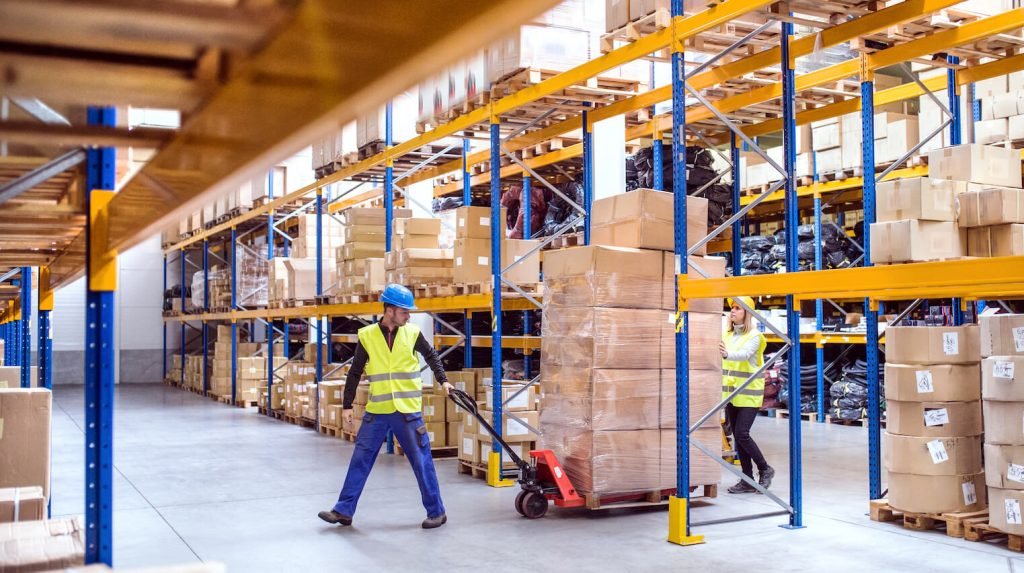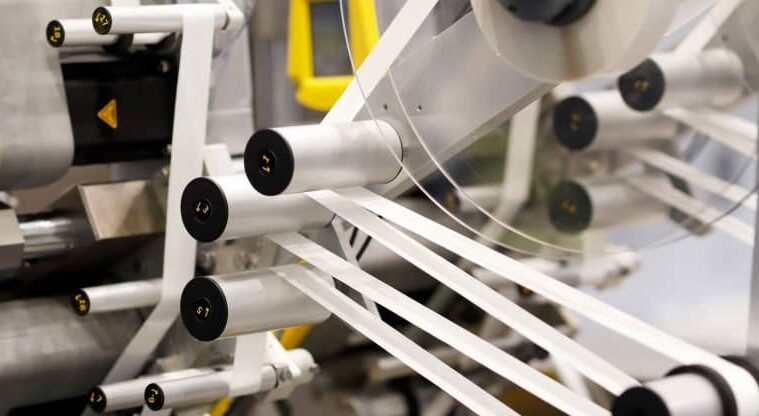China
Email Address
In modern supply chain and inventory management, tracking and labeling are integral aspects that ensure efficiency and accuracy.
The use of specialized papers like Heat Transfer and Thermal Paper in barcode printers significantly optimizes these processes.
These papers not only extend the printer's head life but also provide high-quality, durable labels, suitable for a range of conditions from warehouses to retail spaces.
For procurement personnel seeking the pinnacle of label quality and adaptability, YXF Label is the go-to solution.
With our assortment of thermal paper, thermal film, and thermal transfer labels, we ensure a perfect match for your diverse operational needs.
Experience efficiency, reliability, and customizable excellence with every label choice.
Thermal Labels, with its broad spectrum including thermal paper, thermal film, thermal synthetic paper, is the cornerstone for various industries. Its applications are vast and influential
Within the medical sector, thermal labels are indispensable for laboratory samples, especially those that undergo temperature fluctuations such as frozen specimen storage.
Their resilience to cold temperatures ensures that they remain legible and adhere properly.
In a large warehouse, goods are often stored for long periods of time. Clear labeling is essential, showing their contents and storage date.
The environment fluctuates between cold and normal temperatures, emphasizing the resilience of the thermal labels.
In the frozen food sector, products require labeling that withstands extremely low temperatures.
Thermal labels remain adhesive and legible in such conditions, making them the go-to choice over ordinary paper labels.
Ready to upgrade to thermal labels that deliver both quality and versatility?
Reach out to us and discover how our labeling solutions can redefine your brand’s impact.
Before diving into the label selection process, a thorough understanding of your industry’s specific requirements is imperative.
Different industries have unique labeling needs.
At YXF Label, we offer a range of paper labels, each designed to meet the specialized needs of various industries. With our quality assurance protocols, you can rest assured that each batch is consistent, thereby reducing downtime and customer complaints.
In the realm of labeling, both thermal and regular paper labels serve distinct purposes, blending seamlessly into varying industry requirements. However, understanding the nuances between these two can significantly impact the efficiency and longevity of your labeling needs.
Starting with material composition, regular paper labels generally consist of semi-gloss paper, wood-free paper, or even fluorescent paper. These types are versatile and commonly utilized in diverse industries like food, medicine, and advertising. Thermal paper labels, on the other hand, come with a thermo-sensitive coating, designed to react to heat from a barcode printer’s print head. This makes them specifically suited for sectors requiring quick, short-term labels such as retail and logistics.
When it comes to surface texture, the thermal paper labels provide a smooth but non-reflective finish. This is particularly beneficial for barcode readability, ensuring efficient scanning and reduced errors. Regular paper labels offer more variety in finish—from glossy to matte—which may need specific ink types to ensure print adhesion.
This brings us to printing requirements. Thermal labels rely on heat activation, and they do not require ink or ribbon, reducing running costs and printer maintenance. Regular paper labels are more demanding in terms of print technology; whether it’s inkjet or laser, the choice depends on the finish of the paper and the durability of print you seek.
One crucial aspect to consider is the longevity of ink retention. Thermal labels are typically less resistant to heat, light, and environmental conditions, which might cause the print to fade over time. This makes them less suitable for applications where the label will be exposed to harsh conditions for an extended period. In contrast, regular paper labels with appropriate ink can withstand environmental factors better, making them suitable for long-term product identification.
By understanding these nuanced differences, you can optimize your choice of labels to better align with your operational needs, cost considerations, and long-term business goals.

Navigating the myriad options of thermal labels can be overwhelming, especially when the efficiency of your supply chain and quality control largely depend on this choice. Understanding the nuances of various types of thermal labels is crucial for procurement personnel to make informed decisions that align with the organization’s specific requirements.
Thermal labels come in different base materials, primarily thermal paper and thermal synthetic paper. While both are heat-sensitive, the synthetic variety offers better resistance to moisture, oil, and chemicals. This makes it an ideal choice for environments that are prone to these elements, such as outdoor logistics and chemical plants.
Thermal labels can be further categorized into one-proof and three-proof, based on their resistance to external factors. If your operations require labels that stand the test of time, the three-proof variety, which is resistant to water, oil, and alcohol, is the go-to option. On the other hand, one-proof labels are more suitable for short-term applications where quick identification is the priority.
A fundamental point often overlooked is the compatibility of the labels with your existing barcode printers. The print head’s lifespan can be significantly affected by the label type, so ensure that the thermal labels you choose are fully compatible with your printers to avoid unnecessary downtimes and to prolong the life of your equipment.
In a B2B environment, managing costs without compromising on quality is often a delicate balance. High-quality thermal labels might have a steeper upfront cost but can save you money in the long run by reducing downtimes and minimizing complaints due to poor quality or unreadable barcodes.
Given the diverse applications of thermal labels across various industries, from retail and healthcare to manufacturing, customization can be a crucial factor. Many suppliers offer customizable size, shape, and even pre-printed information on the labels, providing a tailored solution for your specific needs.
By keeping these factors in mind, you’re not only optimizing your immediate procurement process but also laying the groundwork for streamlined operations and quality assurance in the long run. Choose wisely to align with both your operational requirements and long-term business strategies.
Not all labels are created equal when it comes to enduring environmental stress.
If your products are stored in varying temperatures or in moisture-prone areas, it is imperative to choose labels that can withstand these conditions.
Failing to do so can lead to peeling, fading, and even disintegration, compromising both inventory management and brand image.
YXF Label ensures durable label materials are used to match the environmental requirements of your product storage or display areas.

When high visibility is your key requirement, fluorescent paper labels can be a game-changer.
They are especially useful in safety warnings, promotional tags, or limited-time offers where you need the label to instantly grab attention.
However, the materials for such labels can be on the higher end of the cost spectrum and are not often suited for long-term outdoor use, as they can fade with prolonged UV exposure.
One often overlooked aspect of labels is the quality of adhesive used.
Labels with poor adhesive can fall off or curl at the edges, leading to problems in inventory tracking, logistics, and even legal issues if they contain mandatory information. It’s crucial to select a label with high-quality adhesive suited for your application, whether that’s cold storage or outdoor exposure.
YXF Label offers a variety of adhesives to cater to your specific needs, ensuring optimal performance.
The importance of adhering to industry-specific labeling regulations cannot be stressed enough.
Especially in sectors like healthcare, food and beverages, and hazardous materials, regulatory compliance is not just a guideline but a legal requirement.
YXF Label assists you in understanding these norms and ensures that your labels are compliant, thereby avoiding potential legal issues and ensuring customer safety.
Vendor reliability is another crucial factor in your label procurement process.
The ideal vendor should have a proven track record, necessary certifications, and robust quality control systems.
YXF Label’s quality assurance protocols ensure batch-to-batch consistency, which will help to reduce downtime and customer complaints related to quality issues.
The financial aspect of label procurement is two-fold: upfront costs and payment terms.
While the initial price is undoubtedly important, don’t overlook the flexibility in payment terms.
YXF Label provides multiple payment options to accommodate your financial planning without compromising on quality.
High-quality printing is crucial for ensuring that the text and graphics on your labels are clear and easily readable.
Poor print quality not only detracts from the overall appearance of your product but can lead to misunderstandings or even legal issues if vital information is unreadable.
Therefore, always opt for a supplier with advanced printing technologies and stringent quality control, like YXF Label, to ensure your labels always meet the highest standards.

Over time, some labels may fade, particularly when exposed to sunlight or harsh environmental conditions.
It’s essential to consider how well the label retains its color over its expected lifespan, as faded labels can make even the best products appear outdated or poorly maintained.
As sustainability becomes more crucial in consumer choices, opting for eco-friendly label materials can be a valuable selling point for your product.
This doesn’t just mean the label itself but also the processes used in its manufacturing and distribution.
Make sure to inquire about these aspects when choosing your label supplier.
For products that require an extra layer of security, like pharmaceuticals or high-value goods, labels with anti-tamper features can add an extra layer of protection.
These features can range from simple tear strips to advanced holographic seals.
The lifespan of the label should match the lifespan of the product it’s attached to.
For example, durable goods require labels that can withstand wear and tear over time.
On the other hand, perishable goods may not require such long-lasting labels.
Always consider the longevity of your labels to make sure they fulfill their role for the required amount of time.
The texture of your label can add an extra sensory dimension to your product, creating a more memorable experience for the consumer.
However, it can also affect the legibility of the text and the durability of the label.
Always weigh these factors when deciding on the texture of your labels.
Sometimes, off-the-shelf solutions just won’t do.
Depending on your specific needs, you may require labels with unique shapes, sizes, or materials.
A good label supplier should offer you a wide range of customization options to ensure your labels perfectly match your product and branding.
We have compiled the most frequently asked questions about CHINA YXF LABELS here for your convenience, but please feel free to contact us if you have any additional questions.
1. Wire Transfer, T/T (Telegraphic transfer) 2. PayPal 3. Western Union 4. Credit Card(MasterCard, Visa Card etc.) 5. BDK 6. China Trust
It will be sent via DHL/UPS /FedEx on the same day if we have your samples in stock.
we will give you the exact delivery date when we confirm your PI and payment, and we can finish it in time.
The MOQ depends on the price and products, please contact us for details.
we support small order, cost-effective sample production
If you tell us the following information – we will help you to understand how much it costs.
We carry a comprehensive selection of products and we’d be happy to send you our complete catalog.
We have a professional after-sales team who will solve your problems as soon as possible.
Surely! You can always request a sample before place the bulk order. Sample time usually will take 2-3 days, depends on the specifications you need.
Request a sample now!
we support factory audits, we welcome your visit to our factory.
Don’t hesitate! Comparing prices from different sources is a global rule. Feel free to put our products to the test against others; we can stand up to your scrutiny, whether it’s in terms of performance or pricing.
